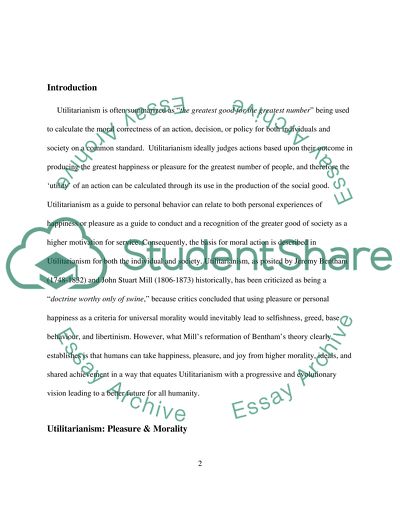Cite this document
(“John Stuart Mill: Utilitarianism and Pleasure Essay”, n.d.)
Retrieved de https://studentshare.org/philosophy/1391424-john-stuart-mill-utilitarianism-and-pleasure
Retrieved de https://studentshare.org/philosophy/1391424-john-stuart-mill-utilitarianism-and-pleasure
(John Stuart Mill: Utilitarianism and Pleasure Essay)
https://studentshare.org/philosophy/1391424-john-stuart-mill-utilitarianism-and-pleasure.
https://studentshare.org/philosophy/1391424-john-stuart-mill-utilitarianism-and-pleasure.
“John Stuart Mill: Utilitarianism and Pleasure Essay”, n.d. https://studentshare.org/philosophy/1391424-john-stuart-mill-utilitarianism-and-pleasure.


